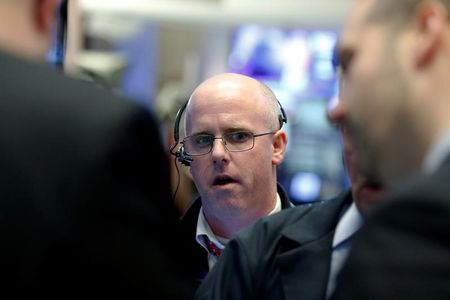Follow us on LinkedIn
If you are new to the world of options, you may be wondering what the difference is between futures options and stock options. In this blog post, we will break it down for you and explain the key differences. Futures options are contracts that give the holder the right to buy or sell a certain asset at a predetermined price on or before a certain date. Stock options, on the other hand, are contracts that give the holder the right to buy or sell shares of a company’s stock at a predetermined price on or before a certain date. So, what’s the difference? Let’s take a closer look.
What are futures options?
Futures options are a type of derivative contract that gives the holder the right to buy or sell an underlying asset at a predetermined price on or before a certain date in the future. Typically, this underlying asset is something such as commodities, currencies, or index futures. You’ll often see futures options used for hedging purposes by traders who want to lock in a certain price for the future sale or purchase of an asset, such as wheat or corn.
Futures options are typically traded on exchanges such as the CBOE (Chicago Board Options Exchange) and CME (Chicago Mercantile Exchange), where they are paired with futures contracts. The holder of a contract has the right to exercise it at any time and is generally under no obligation to do so.
What are stock options?
Stock options, on the other hand, are contracts that give the holder the right to purchase shares of a company’s stock at a predetermined price on or before a certain date in the future. Whereas futures options are often traded between financial institutions, stock options are usually traded by individual retail investors.
Given that the value of a stock option depends on the value of the underlying security, individuals who trade these contracts typically use them to hedge their portfolios against fluctuations in price and minimize risk. Many companies also offer employees stock options as a form of compensation, which can provide additional incentives and a way to profit if the shares in the company increase in value.
So, what’s the difference?
The main difference between futures options and stock options is that futures options are financial derivatives on futures. Therefore the margin requirement for futures options is lower than that for stock options.
Another difference between the two types of option contracts is how they are traded on an exchange. Futures options are typically traded between institutional investors, while stock options are generally traded directly by investors on an exchange.
What are the similarities between the two?
Although there are significant differences between futures options and stock options, both types of option contracts share some common features. For example, both futures options and stock options are derivatives, which means their value is derived from the value of an underlying security. Also, like most other types of options, both futures options and stock options have an expiration date.
FAQs
What are some examples of futures options?
Some common examples of futures options include commodities such as oil, gold, and corn. You’ll often also see futures options used for currencies, such as the Japanese yen or the Swiss franc. Futures options are also commonly used for index futures, such as the S&P 500 or the Dow Jones Industrial Average.
What are some pros and cons of trading futures options?
There are a few pros to trading futures options. First, you can use them to speculate on the price of commodities or currencies, potentially making gains if the value of your contract increases. Second, you can use futures options to hedge an asset that you already own, potentially reducing or even eliminating risk.
However, there are also a few potential downsides to trading futures options. For example, if the price of the underlying asset moves against you, the value of your contract will decline. Also, trading futures options can involve a lot of risks—the potential for loss is substantial if you aren’t careful.
What are the main risks involved with trading futures options?
As mentioned above, one of the biggest risks you can take when trading futures options is buying a contract on an underlying asset that moves against you. In this case, your losses could be substantial if you don’t close out your position in time. Also, the prices of futures contracts can change quickly and unpredictably during market volatility, which could leave you in an unfavorable position. Finally, many futures options can only be traded on certain exchanges and are subject to margin requirements, so you may incur an additional cost when trading futures options.
When should you consider investing in futures options?
If you have some experience with trading options and are comfortable taking risks, then futures options could be a good investment for you. However, if you are new to options trading or don’t feel comfortable taking on additional risk, it may be best to avoid futures options. When investing in any type of option, it’s essential to do your research first and only invest what you can afford to lose.
Closing thoughts
In conclusion, both futures options and stock options are financial derivatives that give the holder certain rights regarding the underlying asset. However, futures options are typically traded by institutional investors, while stock options can be bought and sold directly on an exchange. Additionally, one of the main differences between futures options and stock options is the underlying asset—futures contracts are typically tied to a commodity or currency, while stock options are tied to individual stocks.
Now that you know more about the differences between futures options and stock options, you can make a more informed decision about how you want to invest. However, be sure to do your research beforehand and consider all of your options before making any final decisions.
Further questions
What's your question? Ask it in the discussion forum
Have an answer to the questions below? Post it here or in the forum




